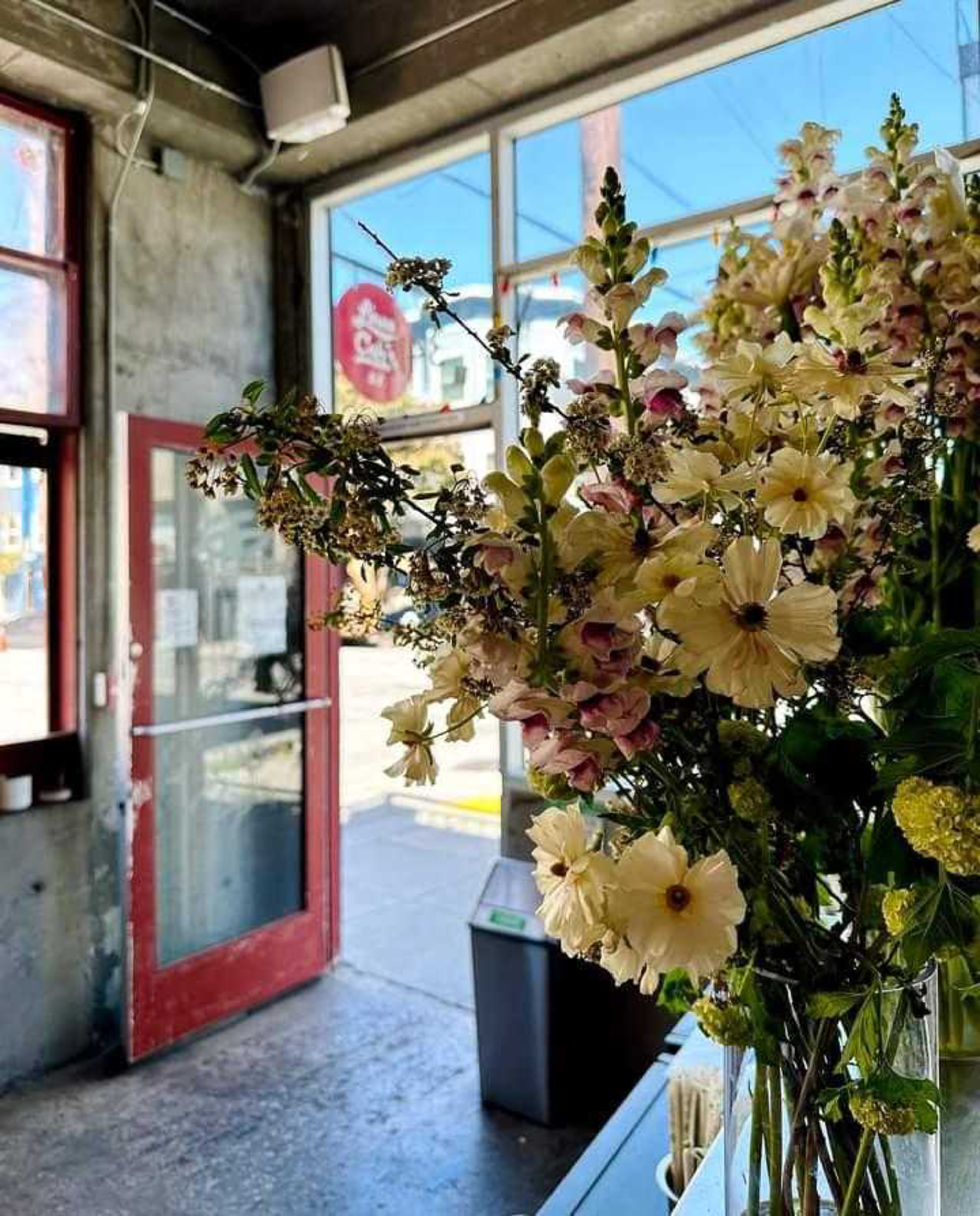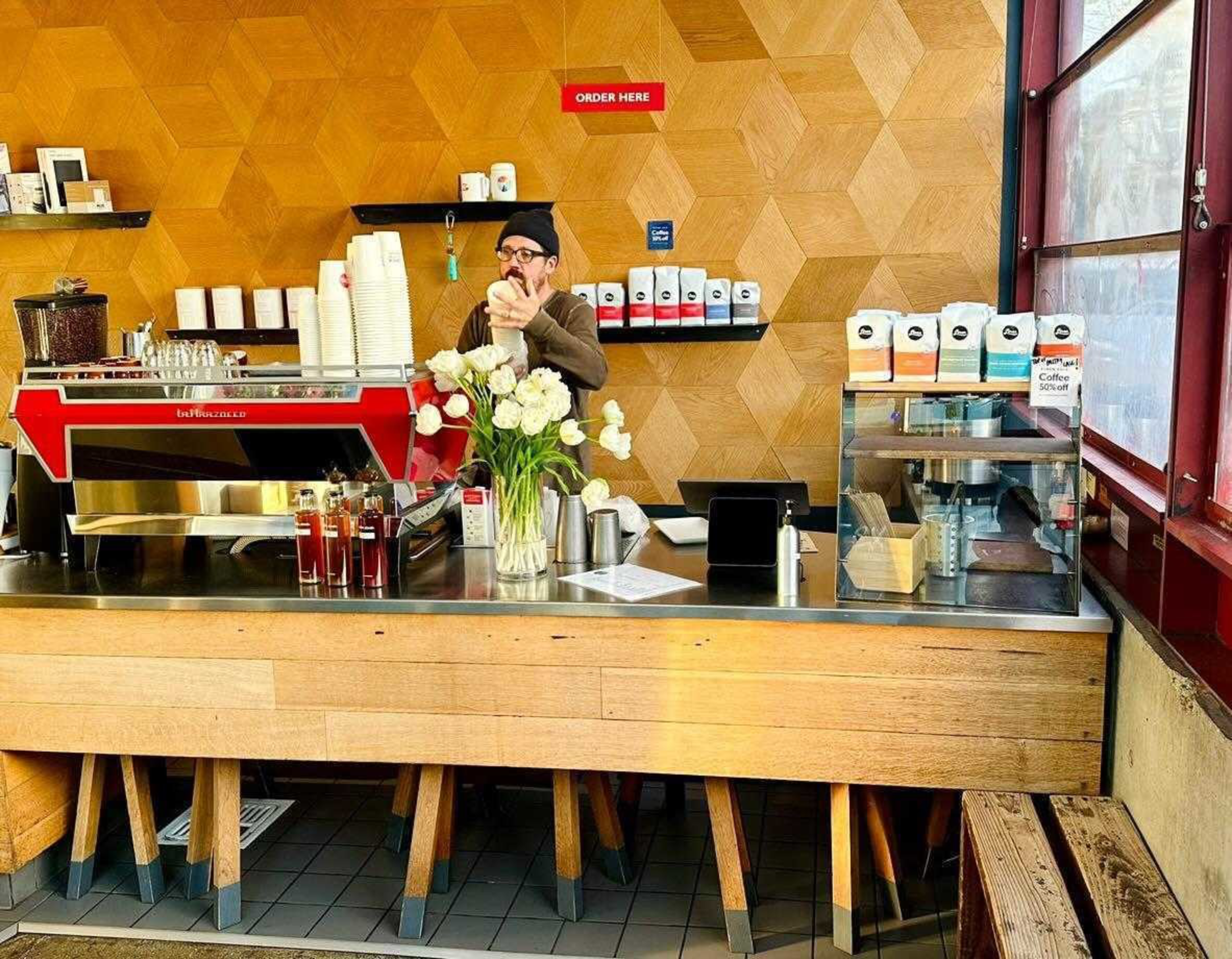In March 2020, Andrew Barnett did what countless business owners had to do: Close his Mission District cafe, Linea Caffe (opens in new tab), and figure out how to survive. The pint-size coffee shop on the corner of 18th and Mission streets went dark on March 17, 2020, picking back up two months later to serve coffee through a window.
At just 292 square feet, Linea doesn’t exactly lend itself to social distancing, so out of an abundance of caution, Barnett’s team held off from fully reopening—until now. Linea Caffe only returned to indoor service this month.
First opened in 2013, Barnett added a second cafe and roastery in Potrero Hill in August 2020 as a way to expand his pandemic-era business model.
Three years later, the original Linea Caffe location is largely unchanged—again, a function of its size.
“The place is like a postage stamp,” he told The Standard. “Before, we’d jam a bench or two in there, but now that it’s more open it’s much more inviting.”
Having recently certified Linea as a B Corp, Barnett is a strong believer in paying workers a sustainable wage. At Linea, that means $20 plus tips and a premium price to coffee farmers.
“We believe you can do good by running a business,” he said. “But it’s tough. You have to ask yourself, ‘How do you pay someone a livable wage in one of the most expensive cities in the world?’”
At the same time, Barnett explained that he has to balance the expectations of customers.
“A lot of people feel if you charge $6 for a latte, you’re ripping them off,” he said. “It’s a tight-wire act.”

Born and raised in Chicago, Barnett moved to San Francisco to become a dinner chef, later pivoting to coffee after “talking [his] way into a job” at Higher Grounds Coffee House in Glen Park—a 40-year-old cafe that largely remains a time capsule in that village-like neighborhood.
Barnett counts himself lucky to have gotten to the other side of Covid when many other Bay Area businesses have not. Part of the reason he waited so long to fully reopen Linea, he said, is that the pandemic isn’t actually over.
“There are still people getting sick, and plenty more feeling the economic effects of it,” he said.
Amid a trending media narrative about San Francisco’s so-called “death spiral,” Barnett added that he’s not in denial of the problems that exist here, but he feels that all American cities struggle with poverty, mental illness and a lack of affordable housing.
“There’s a focus on what’s wrong with San Francisco,” he said. “But when I walk around the city, I see a lot of vibrancy. We’re still here.”
